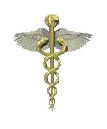
THURSDAY, April 14 (HealthDay News) — Most Americans believe the quality of health care in the United States is average at best, a new poll finds.
The telephone survey of 1,034 adults aged 18 and older found that 55 percent gave U.S. health care quality a C or D, and 11 percent gave it an F.
Nearly half (47 percent) of respondents rated the quality of hospital care in the United States as a C, D or F.
Income had a major influence on people’s perceptions of the quality of health care. Grades of C, D or F were given by 43 percent of those with household incomes of less than $50,000, compared with 21 percent of those with household incomes of $50,000 or more.
In recent years, Americans have received significantly more information to help them compare the quality of local health care providers. But many people still opt for care from familiar health care providers instead of choosing those with the best quality ratings.
For example, 57 percent of the survey participants said they would choose a familiar hospital, while 38 percent said they would select one that scores better in quality. About half (48 percent) said they would opt for a surgeon who successfully treated a family member or friend, while 47 percent said they would pick an unknown surgeon with higher quality ratings.
The poll was commissioned by the Robert Wood Johnson Foundation and presented Tuesday at a meeting of the American Hospital Association in Washington, D.C.
“The poll is a wake-up call for payers and the health care industry, both of which have been working steadily to improve the quality of care, but need to kick their efforts into overdrive toward accountability,” Dr. Risa Lavizzo-Mourey, president and CEO of the Robert Wood Johnson Foundation, said in a foundation news release.
“American health care faces a crisis in quality. There is a dangerous divide between the potential for the high level of quality care that our health system promises, and the uneven quality that it actually delivers. Clearly, consumers are aware of it. There are too many errors, too much misuse of medical treatments and, too often, poorly coordinated care among a patient’s different health care providers,” Lavizzo-Mourey said.
More information
The U.S. Agency for Healthcare Research and Quality offers a guide to quality health care.

